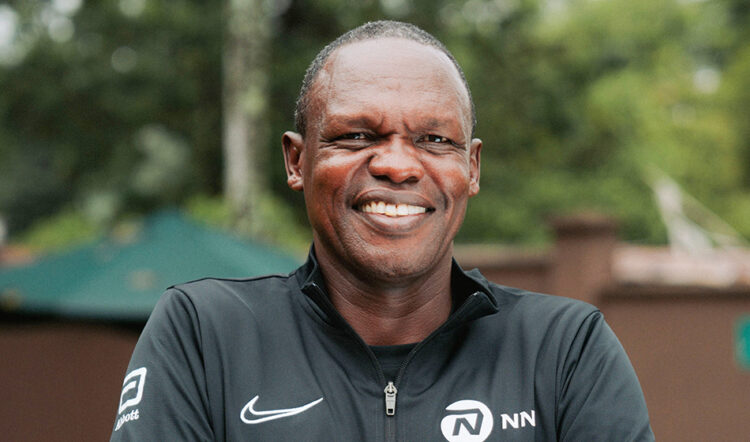George Mallett talks to the mentor who has masterminded the careers of some of the most successful distance runners in history
Few coaches have ever guided quite so many Olympic champions as Patrick Sang. For over 20 years, the 3000m steeplechase Olympic and world silver medallist has led the Global Sports Communication Camp in Kaptagat, western Kenya, writing Eliud Kipchoge his first ever training plan and masterminding the successful comeback of Faith Kipyegon after the birth of her daughter. Even Uganda’s 5000m Olympic and 10,000m world champion Joshua Cheptegei has spent time under his watch.
A total of 25 athletes stay in Sang’s camp, looking after themselves as he drives in from nearby Eldoret to manage their day-to-day training. With some of his athletes undergoing possibly the most testing times of their careers, he sat down with AW to talk about their legacies. knowing full well that this summer’s Paris Olympics may define his own.
How would you describe yourself as an athlete?
Maybe a self-made athlete. I discovered that I was able to run by accident in class competitions. I got a scholarship [to America] and then all the way until when I retired I was basically self-coached 80 per cent of the time.
Did this make you realise you might make a good coach for others? What else made you want to follow that path?
That probably influenced my decision to help athletes. Towards the end of my career, people joined my training and they just followed my programme. I was training for the 3000m steeplechase but people were following.
I could also see that, besides being a coach, you need to be able to lead. The fact that people would follow my programme showed that I was also a leader of some sort.
How did you get better as a coach?
To coach somebody else you have to be trained. You have to acquire the knowledge. After my running career I went for coaching training for long and middle distance, from the lowest level to the highest level.
But when you train you use yourself and the way you used to do things as a case study.
You can refer to what you used to do. That’s why you go to school and then you go for practical training. My practical training came before the actual learning, so it was easy to refer.
Patrick Sang
Can you explain your philosophy?
My philosophy is that, to have a successful relationship between coach and athlete, you have to have total trust. An athlete that trusts you, even when you tell them to run something that is not…
CLICK HERE to Read the Full Original Article at AW…

